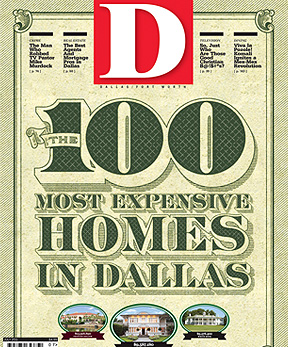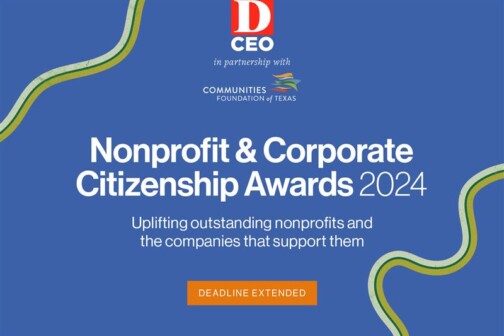I invited Joe Tone to meet me for a drink about six weeks after he arrived in town. I showed up early and sat down at a table with a clear view of the front door. I only had one not-great online photo of the new Dallas Observer editor to go on, but I recognized him by his frat-boy cherubic face—he’s 32, a full two decades younger than his predecessor, Mark Donald—and by the way he was squinting around the perimeter of the room, presumably looking for me. Or so I thought. Turned out to be someone else, someone who shook my hand and answered to the name “Joe,” even though his name was really Jared.
A minute later, the real Joe Tone arrived, looking maybe 5 percent different from his accidental impostor, and shorter than I would have expected. The mixup, though it might seem like a minor detail, is telling. It represents a major shift in how the Observer operates. For an alternative weekly, it has become dangerously old over the last few years, its franchise player a sixtysomething columnist. I never would have misidentified Donald in a bar, nor Donald’s predecessor, Julie Lyons, a Pentecostal Christian who believed that she had prayed a cat back to life. Neither one would have met me in a bar, and I certainly wouldn’t have confused them with someone else. As the Observer continues to evolve, to remain relevant and profitable, the smartest thing it could have done is hire someone who is hard to find in a bar.
I didn’t learn much from Tone. For an hour, he dutifully answered my questions, but he seemed to regret it as he did so. He wasn’t suspicious so much as he was bemused, wondering whether anyone cared about his answers and why I was asking the questions in the first place. The biggest question: how is the Observer doing?
It might seem like the paper is in trouble. Its page counts appear dangerously low, especially compared to the high-cotton days of a decade ago, when an average issue ran about 200 pages. Even as recently as five years ago, it was still reliably checking in at 140 or so. Since then, however, that number has dipped as low as 64 pages and generally hovers somewhere in the 70s.
I worked at the Observer for almost nine years, spending a large chunk of that time as the music editor. My section usually contained three lengthy features (ranging from 1,200 to 2,400 words), a handful of record reviews and show previews, and a local music column. That’s just a starting point; usually it was more.
The paper as a whole was similarly overstuffed. There were 13 staff writers, not including editors and various other people who wrote for the paper. (There are now four.) Nothing was ever cut for space. Generally, the opposite was true. A cover story might run 8,000 words. I recall many weeks spent combing through recent issues of our sister papers in the New Times chain, looking for a piece I could re-run as a fourth music feature, desperately trying to fill what seemed like a never-ending hole created by all those ads. If someone had told one of us back then that we would eventually be putting out 64-page issues, we would have laughed. It was an unfathomable number.
Yet that is the current reality. I assumed, just based on that number and what it actually feels like to pick up a copy each week, that the Observer was in serious trouble. It’s true that the paper is not doing great, certainly in comparison to the time I just described. But, of course, no newspaper—whether it’s a daily or a weekly—is doing as well as it once did.
Precise numbers are impossible to nail down, with the company being privately held and publisher Kevin Thornburg only offering generic business-speak about “platforms” and so on. But I talked to one alternative weekly veteran with some knowledge of the paper’s finances. The vet cautions me that it’s hard to look at a paper now and judge it by page count alone. The Observer has fewer pages, but it doesn’t fill them in the same way; it runs tighter books, the vet says, and has changed the advertising-editorial ratio to maximize profits. And that eye test, long a standard gauge of publishing industry health, becomes an especially difficult way to judge the Observer and the other papers in its chain (now known as Village Voice Media, after a 2005 merger) because of the way they have adapted to the internet.
No, it hasn’t figured out how to migrate a paper business to the digital world and turn a huge profit doing it. But the Observer and its brethren are closer than most. The industry insider I talked to says the company is “four to five years ahead of everyone else.” Part of this is due to structural investments, especially backpage.com, the online classified-ad company owned by VVM and run by former Observer classified sales director Carl Ferrer. It doesn’t completely make up for the general demise of classified ads, which filled the coffers of alternative weeklies for years and which vanished when Craigslist came along. But the industry vet calls backpage.com a “game changer” for the company, especially since Craigslist abdicated the adult niche, leaving millions in revenue for VVM to scoop up.
Editorially, the chain has embraced the internet in a big way, after many years of dragging its feet. The Observer was at the leading edge of this transition. Tone says the Observer’s main blog, Unfair Park, largely written by Robert Wilonsky, is the template for the other VVM blogs. Unfair Park, along with the Observer’s other blogs—DC9 at Night (music), City of Ate (food), Sportatorium (sports), and The Mixmaster (culture)—have, in effect, transformed the paper into a daily.
They have also made the print product almost irrelevant. I suspect most people now consume the Observer the way I do: on my phone or computer. I pick up a copy of the paper if I’m waiting for someone at a bar, or maybe eating lunch by myself. Joe Tone is the perfect hire for this new version of the Observer. A VVM “golden boy,” as one staff member refers to him, he has worked at other cities in the chain and on both the print and digital sides. He made more appearances on the Observer’s blogs (writing about a mayoral forum with surprising command, for example) in his first few days than Donald did in his year at the helm.
Which isn’t a real shock. Donald is a gifted but often ponderous writer who needed to sit with a story for several months; in internet time, that is years. Also, Donald wasn’t exactly technologically savvy. I recall having to sit through a Microsoft Word seminar, which seemed like an elaborate charade meant to teach Donald how to use basic computer functions such as cut and paste without embarrassing him. He was probably not the right person to bridge the divide between digital and print.
Tone is a better fit, but he has work to do. Those missing 80 to 100 pages have migrated online, but the Observer hasn’t figured out how to make them worth what they once were, both in revenue and meaning. Jim Schutze, the Observer’s irascible city columnist, is still the best around, when he is on his game. Giving him the infinite space of the internet, though, has dampened his power. His weekly column in the paper used to be an event, reason enough to pick up a copy. Now, though, that information comes out piecemeal day by day, under a photo of him in a bathrobe holding a shotgun. He is in danger of becoming a parody of himself. Can Tone, almost half his age, stand up to Schutze? Or, for that matter, can he stand up to Robert Wilonsky, who has been there for 20 years and hasn’t really had an editor who knew what to do with a blog? The answer to those questions will help define the Observer’s future. But at least there is one.
Write to [email protected].






